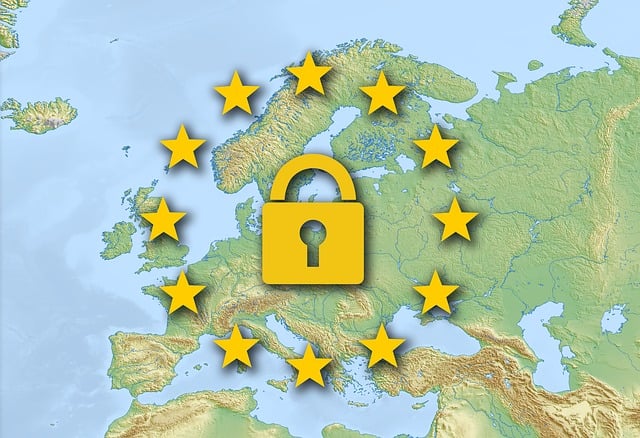General Liability insurance is crucial for e-commerce businesses, protecting them from legal claims arising from operations like customer injuries, product defects, and false advertising. Effective management involves identifying risks, implementing safety standards, ensuring accurate marketing, and securing tailored coverage. Proactive measures build resilience, foster customer trust, and protect against financial losses from unexpected legal issues in the competitive digital marketplace. Understanding and managing general liability is essential for navigating complex legal responsibilities and mitigating financial risks effectively.
In today’s digital landscape, e-commerce businesses face unique challenges when it comes to General Liability. This article delves into the intricacies of General Liability as a cornerstone for online retailers, exploring its scope and impact. We dissect common risks, from product liability to customer injuries, and provide actionable strategies for risk mitigation. From understanding legal duties to analyzing case studies, this guide equips e-commerce entities with knowledge to navigate General Liability effectively, ensuring resilience in an ever-evolving market.
Understanding General Liability: A Foundation for E-commerce Businesses

General Liability is a cornerstone of risk management for any business, and e-commerce enterprises are no exception. It refers to a company’s legal responsibility to cover claims arising from injuries or damages caused to third parties within their operations. For online retailers, this includes various scenarios: customer slip-and-falls on their website due to poor design, product liability for defects leading to user harm, or even allegations of false advertising.
Understanding and managing General Liability is vital for e-commerce success. Businesses should be aware of potential risks and take proactive measures, such as implementing robust product safety standards, ensuring clear and accurate marketing content, and having comprehensive insurance coverage tailored to their online nature. By doing so, e-commerce businesses can create a solid foundation for operations, fostering trust with customers and mitigating financial losses from unexpected legal issues.
The Scope of General Liability Insurance for Online Retailers

For online retailers, understanding the scope of General Liability Insurance is paramount in mitigating risks associated with their e-commerce operations. This insurance coverage protects businesses against a wide range of potential liabilities, including bodily injury or property damage occurring on their premises—even if those incidents involve customers accessing the website or using the services online. It also covers damages arising from products sold, such as defects or injuries caused by faulty merchandise. General Liability Insurance plays a crucial role in shielding e-commerce businesses from financial exposure resulting from personal injury claims, product liability issues, or even slander and libel cases stemming from online interactions.
Beyond the basic coverage, policies can be tailored to address specific risks unique to online retail. This might include extended liability for high-value items, data breach liability protection, or coverage for intellectual property disputes. Such customization ensures that retailers are adequately insured against the evolving challenges of digital commerce, offering a safety net against potential legal repercussions and financial losses in an increasingly competitive online marketplace.
Common Risks and Claims Facing E-commerce Entities

E-commerce entities face a unique set of risks and challenges that can lead to various liability claims. One of the primary concerns is the potential for product liability, as online retailers must ensure the safety and quality of items sold, addressing issues like defective products or inaccurate representations. Additionally, with the increase in online transactions, general liability claims related to contract disputes, negligence, or even personal injuries incurred during delivery processes have become more prevalent.
Another common risk is the management of customer complaints and returns, which can lead to legal issues if not handled appropriately. As e-commerce businesses often operate globally, they must navigate different consumer protection laws and regulations, ensuring compliance to avoid international legal complexities. Moreover, data breaches and privacy invasions are growing concerns, as sensitive customer information needs robust protection to prevent identity theft and related claims.
How to Mitigate Risks and Reduce Exposure to General Liability Claims

To mitigate risks and reduce exposure to general liability claims, e-commerce businesses should prioritize proactive measures that enhance customer safety and satisfaction. Implementing robust product quality control processes, from sourcing reliable suppliers to rigorous in-house testing, can significantly lower the risk of selling defective goods. Clear and comprehensive product descriptions, including detailed specifications and user instructions, empower customers to make informed purchases, thereby reducing claims related to misuse or misunderstanding of products.
Furthermore, investing in user-friendly return policies and efficient customer service channels expedites issue resolution, fostering a positive brand image that can deter potential liabilities. Regularly reviewing and updating insurance coverage to align with the evolving risks associated with e-commerce is crucial. Staying informed about industry regulations and best practices ensures compliance, minimizing the chances of costly legal repercussions or reputational damage.
Legal Obligations and Duties of Care in the E-commerce Sector

In the dynamic landscape of e-commerce, businesses have unique legal obligations and duties of care to navigate. Online retailers must adhere to a robust framework of general liability laws that extend beyond traditional brick-and-mortar operations. These include ensuring product safety, providing accurate information, and managing customer interactions, all while adhering to data privacy regulations.
The duty of care in e-commerce involves proactive measures to prevent harm. This encompasses everything from product quality control to secure online payment systems and transparent return policies. Retailers must also be prepared to handle customer complaints, disputes, and potential litigation efficiently, as general liability claims can arise from various sources, including product defects, misleading marketing, and inadequate security protocols.
Case Studies: Notable General Liability Lawsuits Involving Online Retailers

Strategies for Effective Communication and Customer Relations Management

In the realm of e-commerce, effective communication and customer relations management are paramount to mitigating general liability risks. Building strong relationships with customers fosters trust and reduces the likelihood of disputes or claims stemming from miscommunication or unmet expectations. Implement robust internal communication protocols that ensure clear, consistent, and timely messaging across all touchpoints—from marketing and sales to fulfillment and post-purchase support.
Utilize customer relation management (CRM) tools to streamline interactions, track purchase history, and personalize communications. This not only enhances the customer experience but also serves as a valuable defense in case of liability claims. Proactive communication, including regular updates on order status, delivery information, and after-sales support, can significantly minimize misunderstandings and the associated legal risks.
The Role of Technology and Data Security in General Liability Risk Mitigation

Future Trends and Evolving Landscape of E-commerce General Liability

